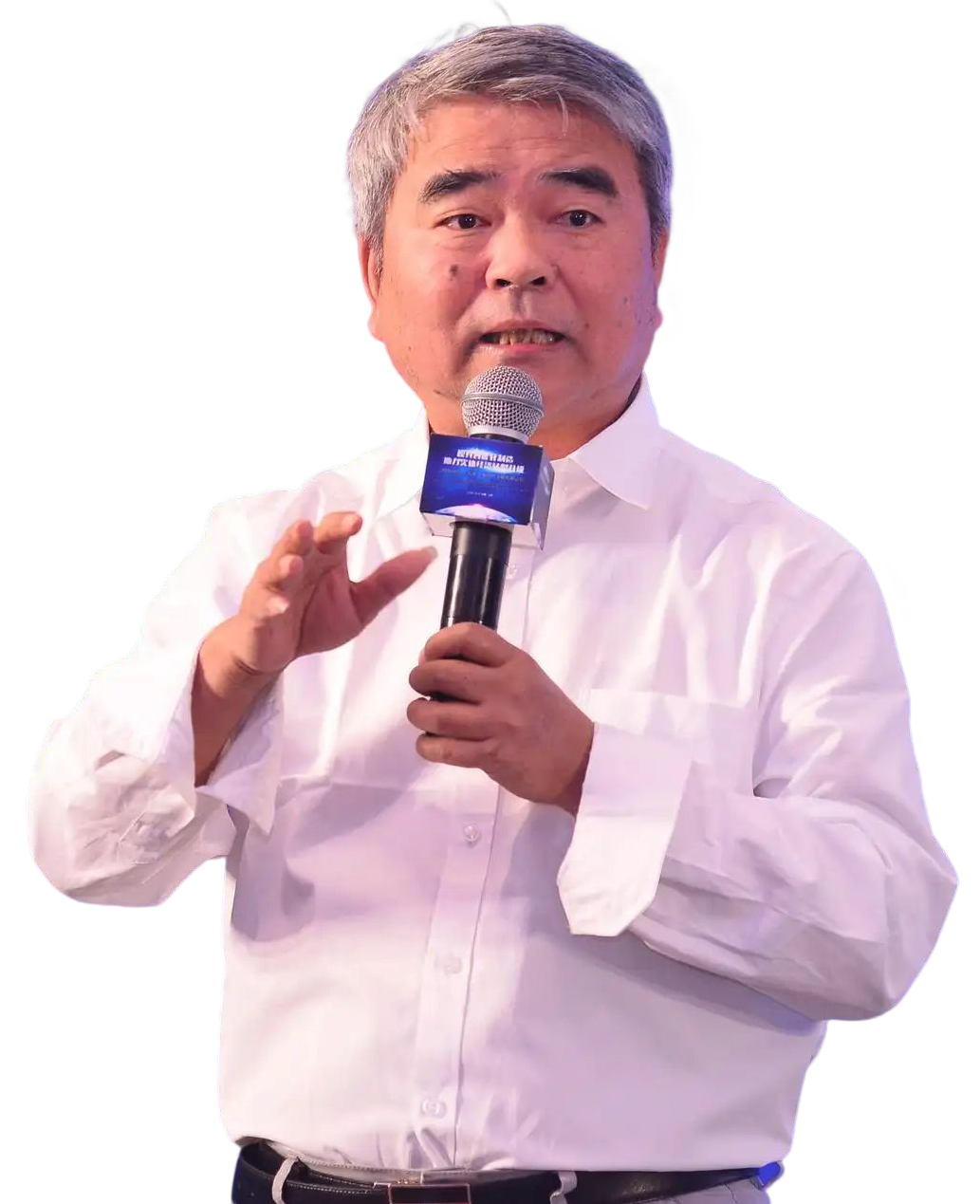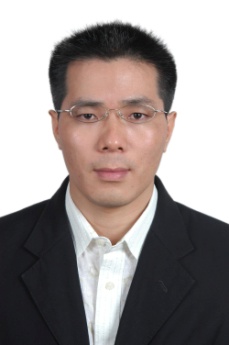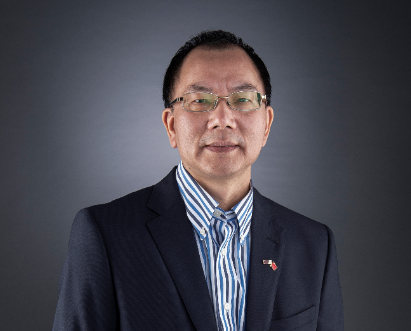IARCE 2023 Speakers
Keynote Speaker Ⅰ

Prof. Jianrong Tan
Institute of Design Engineering School of Mechanical Engineering, Zhejiang University, China
Academician of Chinese Academy of Engineering
Paper Title: Intelligent Robots: from Concept to Industry
A brief introduction to Prof. Jianrong Tan: Jianrong Tan is a mechanical engineering expert, master of engineering and doctor of science, distinguished professor of Zhejiang University. Mainly engaged in mechanical design and digital manufacturing research, and put forward the combination of batch and custom mass customization design technology, engineering transition state, fuzzy state, random state model and digital prototype integrated simulation technology, combination of numerical and geometric complicated equipment multi-unit association, multi-level configuration and parameter matching analysis technology, won 7 national awards, including national science and technology progress second prize 4 items, the national outstanding teaching achievements first prize 1 item, second prize 2 items, awarded provincial scientific and technological progress first prize seven items; Put into use the proposed technique in software, develop and access 12 computer software copyright which have successful applications in a number of manufacturing enterprises. He published 8 books, 142 papers in SCI/EI. In 2007, he was elected to the Chinese Academy of Engineering.
Keynote Speaker Ⅱ

Prof. Yang Li
Beihang University, China
Paper Title: Advances in Brain-Computer Interaction Technologies for Major Brain Diseases
Abstract: This report introduces the research of integrating multimodal individualized brain networks and small-sample deep learning driven by clinical knowledge, in collaboration with clinics. It explores how models hypothesized based on electroencephalogram, multimodal structural/functional imaging, and text/speech data can be used to reveal the mechanism of brain activity in brain diseases, addressing issues such as the unclear pathogenesis of chronic neurological brain diseases, high misdiagnosis rates, and the clinical challenges in effectively detecting abnormal brain activity mechanisms. This work has revealed the potential abnormal brain activity mechanism of chronic brain diseases, providing a theoretical foundation and technical support for exploring the individualized brain functional network connection mechanisms in these diseases. Additionally, it offers quantitative assessment and analysis tools for individualized neuromodulation and rehabilitation treatment interventions for the nervous system.
A brief introduction to Prof. Yang Li: Yang Li is a professor, doctoral supervisor and deputy dean of the School of Automation Science and Electrical Engineering, Beihang University. He is a national leading talent, who graduated from the Department of Automatic Control and Systems Engineering of the University of Sheffield (UK) in 2011 with a PhD degree, and was selected as a member of the "Excellence Hundred" Overseas Talent Program of Beihang University in December 2012, and has been working in the Laboratory of Pattern Recognition and Intelligent Systems since February 2013. He is mainly engaged in medical image analysis and processing, brain-computer interface and neurorehabilitation engineering. The main research tools include electroencephalography (EEG), structural and functional magnetic resonance imaging (DTI/fMRI), and computational analysis methods such as deep learning. He has published more than 60 SCI papers as the first/corresponding author, including IEEE Transactions on Medical Image, Medical Image Analysis, Annual of Neurology, and MICCAI. In the past five years, he has led more than 10 national, provincial and ministerial level research projects, including the National Science Fund for Distinguished Young Scholars, key projects of the National Natural Science Foundation of China (NSFC), the National Key Research and Development Program of China, and key projects of the Beijing Municipal Natural Science Foundation, etc. He has received awards such as the "Harry Worthington" Academic Award from the University of Sheffield, the "Outstanding Self-Funded International Student Award" in the UK, the Wu Wenjun Artificial Intelligence Natural Award, and the "Youth Science and Technology Award" from the Chinese Society of Stereology. He also serves on the editorial board of international journals like the International Journal of Biomedical Engineering and Science.
Keynote Speaker Ⅲ

Prof. Tingwen Huang
Texas A&M University, Qatar
Fellow of IAPR, IEEE and TWAS
Paper Title: Efficient Computational Approaches and Their Applications
Abstract: In a smart grid context, a demand response strategy of electric vehicle charging is modelled by a stochastic game, where a big data analytic framework is proposed for controlling the electric vehicle charging behaviors. We will also look at Plug-In Electric Vehicles (PEVs) Charging: Feeder Overload Control problem. Moreover, a two-stage stochastic game theoretical model is proposed for energy trading problem in a multi-energy microgrid system. Concerning the privacy, a research branch of reinforcement learning (RL) that dominates distributed learning for years will be presented by making the first attempt to apply RL-based algorithms in the energy trading game among smart microgrids where no information concerning the distribution of payoffs is a priori available and the strategy chosen by each microgrid is private to opponents, even trading partners.
A brief introduction to Prof. Tingwen Huang: Tingwen Huang is a Professor at Texas A&M University at Qatar. He received his B.S. degree from Southwest University, China, 1990, his M.S. degree from Sichuan University, China, 1993, and his Ph.D. degree from Texas A&M University, College Station, Texas, 2002. After graduated from Texas A&M University, he worked as a Visiting Assistant Professor there. Then he joined Texas A&M University at Qatar as an Assistant Professor in August 2003, then he was promoted to Professor in 2013. Dr. Huang’s research areas include neural networks, chaotic dynamical systems, complex networks, optimization and control, smart grid. He a Fellow of IAPR, IEEE and TWAS (The World Academy of Sciences).
Keynote Speaker Ⅳ

Prof. Christos G. Cassandras
Boston University, USA
Fellow of IEEE, IFAC
Paper Title: Optimal Safe-critical Autonomy for Multi-agent Systems: Making Autonomous Vehicles a Reality
Abstract: Implementing solutions to complex dynamic optimization problems is limited by the fact that these solutions must often satisfy hard safety constraints at all times. A prime example arises in optimizing the operation of autonomous mobile robots (e.g., autonomous vehicles) which must, above all else, guarantee safety. Obtaining such solutions incurs a high computational cost, which limits them to models with simple linear dynamics, simple objective functions, and ignoring noise. Control Barrier Functions (CBFs) may be used for safety-critical control overcoming such limitations at the expense of sub-optimal performance. We present a real-time control framework that combines trajectories generated through optimal control with the computationally efficient CBF method providing safety guarantees. A tractable optimal solution is first obtained for a linear or linearized system with few or no constraints. Next, this solution is optimally tracked while using CBFs to guarantee the satisfaction of all state and control constraints. This Optimal Control and CBF (OCBF) framework is applied to autonomous vehicles in transportation systems where the objective is to jointly minimize the travel time and energy consumption for each vehicle subject to speed, acceleration, and speed-dependent safety constraints. We will also present some recent new results showing that this framework can be robust to the behavior of human-driven vehicles despite their uncontrollable and unpredictable behaviors.
A brief introduction to Prof. Christos G. Cassandras: Christos G. Cassandras is Distinguished Professor of Engineering at Boston University. He is Head of the Division of Systems Engineering, Professor of Electrical and Computer Engineering, and co-founder of Boston University’s Center for Information and Systems Engineering (CISE). He received a B.S. degree from Yale University, M.S.E.E from Stanford University, and S.M. and Ph.D. degrees from Harvard University. In 1982-84 he was with ITP Boston, Inc. where he worked on the design of automated manufacturing systems. In 1984-1996 he was a faculty member at the Department of Electrical and Computer Engineering, University of Massachusetts/Amherst. He specializes in the areas of discrete event and hybrid systems, cooperative control, stochastic optimization, and computer simulation, with applications to computer and sensor networks, manufacturing systems, and transportation systems. He has published over 500 refereed papers in these areas, and seven books. He has guest-edited several technical journal issues and serves on several journal Editorial Boards. In addition to his academic activities, he has worked extensively with industrial organizations on various systems integration projects and the development of decision-support software. He has most recently collaborated with MathWorks, Inc. in the development of the discrete event and hybrid system simulator SimEvents. Dr. Cassandras was Editor-in-Chief of the IEEE Transactions on Automatic Control from 1998 through 2009 and has also served as Editor for Technical Notes and Correspondence and Associate Editor. He is currently an Editor of Automatica. He was the 2012 President of the IEEE Control Systems Society (CSS). He has also served as Vice President for Publications and on the Board of Governors of the CSS, as well as on several IEEE committees, and has chaired several conferences. He has been a plenary/keynote speaker at numerous international conferences, including the American Control Conference in 2001, the IEEE Conference on Decision and Control in 2002 and 2016, and the 20th IFAC World Congress in 2017 and has also been an IEEE Distinguished Lecturer. He is the recipient of several awards, including the 2011 IEEE Control Systems Technology Award, the Distinguished Member Award of the IEEE Control Systems Society (2006), the 1999 Harold Chestnut Prize (IFAC Best Control Engineering Textbook) for Discrete Event Systems: Modeling and Performance Analysis, a 2011 prize and a 2014 prize for the IBM/IEEE Smarter Planet Challenge competition (for a “Smart Parking” system and for the analytical engine of the Street Bump system respectively), the 2014 Engineering Distinguished Scholar Award at Boston University, several outstanding paper awards, several honorary professorships, a 1991 Lilly Fellowship and a 2012 Kern Fellowship. He is a member of Phi Beta Kappa and Tau Beta Pi. He is also a Fellow of the IEEE and a Fellow of the IFAC and holds a Chair Professorship at the Department of Automation, Tsinghua University.
Keynote Speaker Ⅴ

Assoc. Prof. Wei Pan
University of Manchester, UK
Paper Title: Bayesian Reinforcement Learning for Robot Control: Bayes meets Bellman meets Lyapunov
Abstract: In recent years, the intersection of machine learning and real-world robotic control has blossomed. A key challenge in many applications is certifying the safety of data-driven control policies. In this talk, I will present a unique Bayesian method in reinforcement learning, modeling the control Lyapunov function and control barrier function as priors. This rarely-explored Bayesian approach shows promise in enhancing control performance, stability, and safety, all while being efficient in computational cost. I will illustrate these principles of 'safe Bayesian reinforcement learning' through both simulated robot control tasks and real-world experiments with wheeled robots, quadrotors, and spacecraft.
A brief introduction to Assoc. Prof. Wei Pan: He is a Senior Lecturer (Associate Professor) in Machine Learning at the Department of Computer Science and a member of Centre for AI Fundamentals and Centre for Robotics and AI, The University of Manchester, UK. Before that, he was an Assistant Professor in Robot Dynamics at the Department of Cognitive Robotics and co-director of Delft SELF AI Lab, TU Delft, Netherlands and a Project Leader at DJI, China. He is an Area Chair or Associate Editor of IEEE Robotics and Automation Letters, ACM Transactions on Probabilistic Machine Learning, Conference on Robot Learning (CoRL), IEEE International Conference on Robotics and Automation (ICRA), IEEE/RSJ International Conference on Intelligent Robots and Systems (IROS). He received his degrees from Imperial College London, University of Science and Technology of China and Harbin Institute of Technology.
